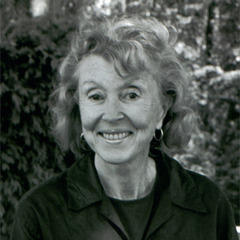Samuel Richardson Quotes

Where words are restrained, the eyes often talk a great deal.
Samuel Richardson (1755). “A collection of the moral and instructive sentiments, maxims, cautions, and reflexions, contained in the histories of Pamela, Clarissa, and Sir Charles Grandison: Digested under proper heads, with references to the volume, ...”, p.384
Samuel Richardson (1751). “Clarissa; Or, The History of a Young Lady: Comprehending the Most Important Concerns of Private Life”, p.432
Samuel Richardson (2014). “Delphi Complete Works of Samuel Richardson (Illustrated)”, p.6833, Delphi Classics
Necessity may well be called the mother of invention but calamity is the test of integrity.
Samuel Richardson (1820). “Clarissa, Or, The History of a Young Lady: Comprehending the Most Important Concerns of Private Life : and Particularly Shewing the Distresses that May Attend the Misconduct Both of Parents and Children, in Relation to Marriage”, p.255
Samuel Richardson (2014). “Clarissa Harlowe, or The History of a Young Lady - Complete”, p.730, Simon and Schuster
Samuel Richardson, Anna Laetitia Barbauld (2011). “The Correspondence of Samuel Richardson: Author of Pamela, Clarissa, and Sir Charles Grandison”, p.188, Cambridge University Press
Samuel Richardson (1751). “Clarissa; Or, The History of a Young Lady: Comprehending the Most Important Concerns of Private Life”, p.395
It is much easier to find fault with others, than to be faultless ourselves.
Samuel Richardson (1980). “A collection of the moral and instructive sentiments: a facsimile reproduction”, Scholars Facsimilies & Reprint
Samuel Richardson (1751). “Letters and passages restored from the original manuscripts of the History of Clarissa. To which is subjoined, a collection of such of the moral and instructive sentiments ... contained in the History, as are presumed to be of general use and service ... Published for the sake of doing justice to the purchasers of the first two editions of that work”, p.295
The pleasures of the mighty are obtained by the tears of the poor.
Samuel Richardson, Clarissa (fict. name.) (1820). “Clarissa; or, The history of a young lady”, p.114
A man who flatters a woman hopes either to find her a fool or to make her one.
Samuel Richardson (1751). “Letters and passages restored from the original manuscripts of the History of Clarissa. To which is subjoined, a collection of such of the moral and instructive sentiments ... contained in the History, as are presumed to be of general use and service ... Published for the sake of doing justice to the purchasers of the first two editions of that work”, p.243
People of little understanding are most apt to be angry when their sense is called into question.
Samuel Richardson (1751). “Clarissa; Or, The History of a Young Lady: Comprehending the Most Important Concerns of Private Life”, p.388
Samuel Richardson (1990). “Clarissa, or, The history of a young lady: comprehending the most important concerns of private life”
Samuel Richardson (1751). “Clarissa; Or, The History of a Young Lady: Comprehending the Most Important Concerns of Private Life”, p.424
Samuel Richardson (1784). “Clarissa: Or, the History of a Young Lady. Comprehending the Most Important Concerns of Private Life. ... By Mr. Samuel Richardson. In Eight Volumes”, p.1206
Women love those best (whether men, women, or children) who give them most pain.
Samuel Richardson (1755). “A collection of the moral and instructive sentiments, maxims, cautions, and reflexions, contained in the histories of Pamela, Clarissa, and Sir Charles Grandison: Digested under proper heads, with references to the volume, ...”, p.192
"Clarissa Or The History of a Young Lady". Book by Samuel Richardson, Volume 4 (p. 443), 1863.
Samuel Richardson (1748). “Clarissa”, p.258, Рипол Классик
Samuel Richardson, Pamela (fict.name.) (1801). “Pamela: or, Virtue rewarded [by S. Richardson]. [Another]”, p.200






